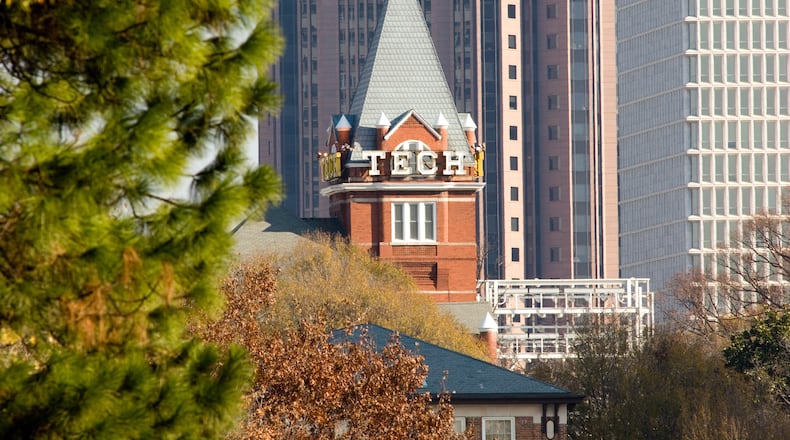In a most trying year, Georgia Tech athletic director Todd Stansbury has implemented a furlough program within the athletic department as it faces significant revenue shortfalls caused by COVID-19.
Full-time employees, including coaches, will take unpaid leave, with the number of furlough days (and corresponding salary reduction) determined by their salary. The highest tier – those making $154,000 or more – will be assigned 29 furlough days, amounting to a pay reduction of 11.15%, according to a copy of the plan shared with the AJC. For football coach Geoff Collins, that’s $345,650 of his scheduled salary for the year, $3.1 million. For men’s basketball coach Josh Pastner, contracted to earn $2 million, he’ll forego $223,000 through the furlough.
Stansbury informed the athletic department’s roughly 175 employees of the plan Thursday after he received approval from the institute to put the furlough program in place. It’s part of a cost-cutting strategy that was made necessary by a projected loss of more than $15 million from ticket sales and associated TECH Fund donations, as well as added costs for COVID-19 testing and other safety measures.
“I certainly understand and appreciate the impact that this program will have on nearly every member of our staff,” Stansbury said in a statement. “As always, I am grateful for all that our staff does for our department and our student-athletes, I appreciate their hard work and sacrifices, and I look forward to continuing to get through this unprecedented situation together and coming out even stronger on the other side.”
To make the furlough more flexible, staff can take their furlough days through July 31, 2021. It’s one month after the fiscal year ends, but July typically is a light month in the college athletics calendar. Stansbury’s goal is for the program to end at that time.
After the highest tier of employees, there are four other salary categories with corresponding numbers of furlough days and salary reductions, with lower-paid staff taking shorter furloughs with less pay withheld. For instance, employees in Tier II (between $33,476 and $58,756) will have a 10-day furlough with salary reduced by 3.85%.
Stansbury has had to make significant cuts in an effort to make ends meet, trimming budgets for administrative units and sports programs by up to 40%. The recruiting budget has been halved, although the NCAA’s freeze on permitting coaches to see recruits in person (eliminating the possibility of traveling to visit prospects or bring them to campus) has eased that cut. Tech athletes have had summer-school options reduced and the incidental-meal program has been suspended.
A year ago, the athletic department budgeted to spend $32.5 million on personnel and ultimately spent $34.7 million. In the most recent budget projection, the department planned for personnel spending for the fiscal year to be $26.1 million, which is about a 20% reduction from last year’s budget. Besides the furlough, Tech has left 16 vacancies unfilled to help limit spending. Stansbury also has banged the drum for fans to convert money set aside for tickets into donations, an initiative that had raised about $1.7 million as of Nov. 20.
The furlough is representative of cost-saving maneuvers being taken in college athletic departments nationwide as social-distancing protocols have drastically limited ticket sales for football and basketball.
Even at the power-conference level, athletic departments have reduced spending by eliminating sports and laying off employees, steps that Stansbury has to this point been able to avoid.
Stanford, Clemson, Minnesota and Iowa all have eliminated some teams. Among others, Texas and Michigan – two of the highest revenue producers in college athletics – have laid off staff.
About the Author
Keep Reading
The Latest
Featured



